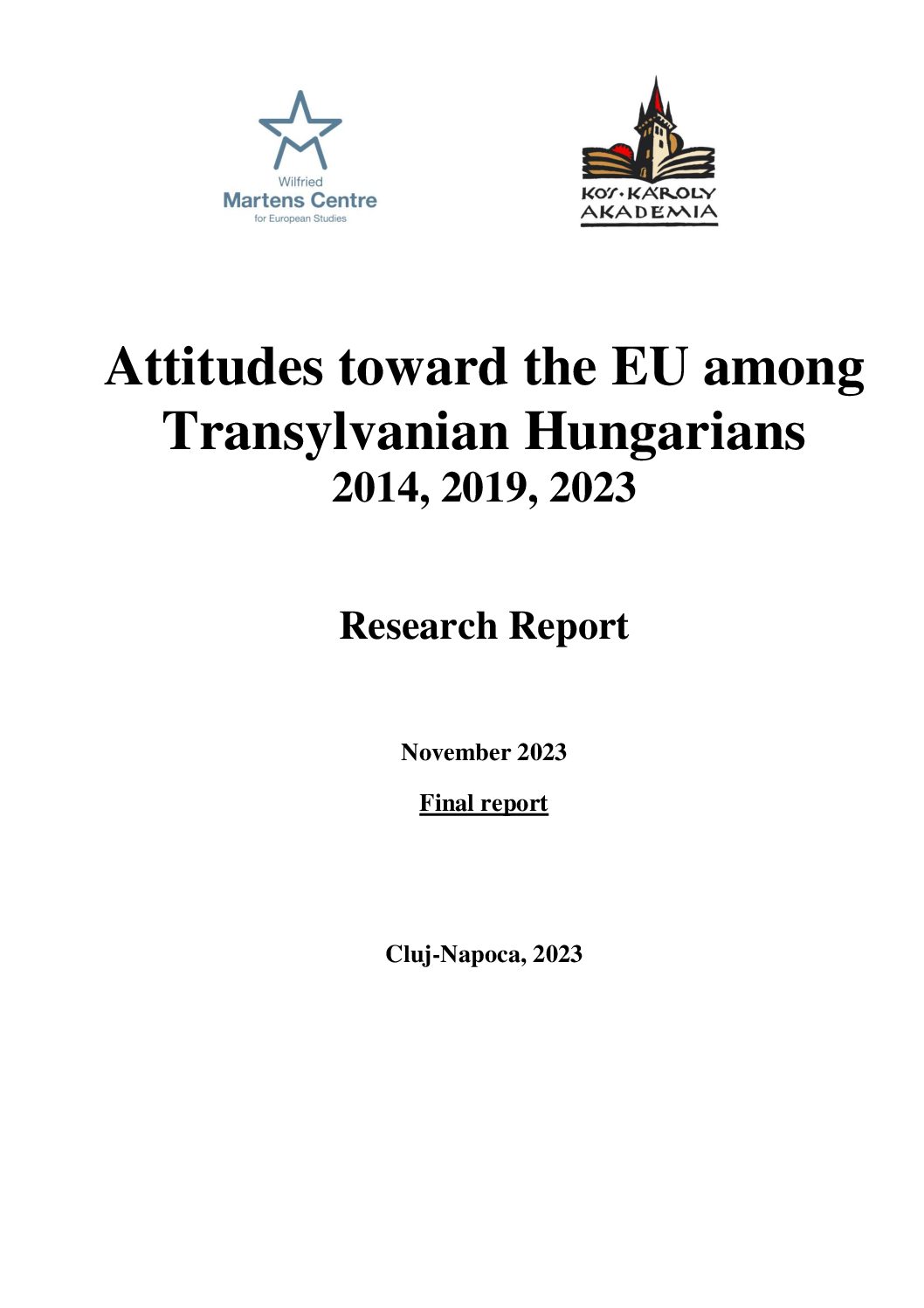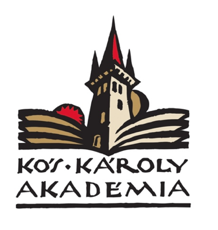Attitudes towards the EU among the Transylvanian Hungarians
31 January 2024
The research project is a common initiative with Kós Károly Akadémia Foundation. The main aim of the research is to achieve a better understanding of factors determining the changing attitudes toward the European Union (and its institution) among the ethnic Hungarian population in Romania. The current analysis aims to present an overall view of the attitudes of Hungarians inTransylvania towards the EU and about its changes between 2014, 2019 and 2023.
Romania joined the EU in 2007. The Hungarian community within Romania has a particular attitude towards the EU and has specific expectations from it. This analysis deals mainly with these attitudes and expectations. According to the census in 2021, there are about one million ethnic Hungarians in Romania representing 6 percent of the country’s permanent population. In the European Parliament elections, the Hungarian community in Transylvania has elected two deputies: in 2007, the Democratic Alliance of Hungarians in Romania (RMDSZ) won two seats and one independent candidate; in 2009 the RMDSZ won three seats and in 2014 and 2019 sent two members of the EP in Brussels.
The report is based on three surveys carried out on a representative sample of Hungarian population in Transylvania, Romania. The surveys used a similar methodology (same sampling methodology, same questions) to elicit opinions expressed by ethnic Hungarians in Transylvania. The research aimed to compare the opinions of Hungarians in Transylvania with the population of Romania and other member states. The three main reference points for interpreting attitudes were the EU averages, the data for Romania and for Hungary, respectively.
The main subject areas of our analysis are the following, among others: general social climate, main challenges for the population, general direction of the EU (geopolitical context), trust in the EU, opinions about accession to the EU, its benefits and disadvantages.
ENJOYING THIS CONTENT?




